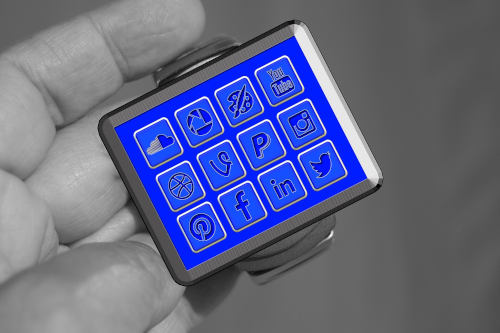Do you have a senior loved one who needs regular checkups and monitoring? Have you been searching for an efficient strategy to manage your situation? Secure a premium-quality alarm device that the senior can wear on their wrist, leg, or neck.
The features of a medical alert device determine its usefulness and efficiency. You want to buy one with these ten highly reliable features.
1. Watertight Design
The situations that demand using emergency alarms vary, with seniors needing them almost everywhere. They require these technologies when bathing, exploring outdoors, and other environments that might speed up wear and render the systems useless. You want a reliable medical alert system that operates in water and other harsh conditions.
Explore the alarm system design, ensuring it can withstand water and UV exposure. Your senior loved one should be able to use the alarm when showering. A watertight design protects electrical and mechanical components. That ensures the alarm can function in the most unfavorable conditions.
2. Smartwatch Functions

Imagine accessing all the apps you need on a simple and discreet device. A smartwatch supports multiple applications, including alarm apps for alerting emergency centers about a health or safety hazard.
Contemporary smartwatches with discreet designs and efficient functionalities are easy to use. You can install your favorite alarm apps to have better control over the well-being and activities of an older loved one.
3. GPS and Mobile Connection
Cases of senior loved ones getting struck outdoors and unable to track their way home have increased. Seniors might forget the way home or experience health problems that affect their ability to return home safely.
Alarms with GPS and mobile connectivity enable seniors to manage even the worst emergencies. The technologies activate automatically, directing emergency responders to your exact location.
4. User Health Monitor
One of the most effective ways to optimize senior safety and comfort is with technologies that can monitor their health. Seniors tend to experience multiple health hazards that require instant addressing to prevent fatalities and long-term effects.
Some advanced units have health monitoring trackers. These features can monitor the wearer’s oxygen levels, heart rate, and blood pressure. They then alert caregivers and the wearer of any abnormalities that could have lasting health effects.
5. Connectivity to Cellular Networks
In today’s tech-rich world, cellular network features have become integral in almost every internet-connected device. You want a robust medical alarm with cellular network connectivity, enabling you to move around with it wherever you go. Devices with cellular networks offer extensive connectivity and provide safety and reliability when traveling, running errands, and at home.
Cellular networks remove the complex landline and wiring connections. They connect to the next cellular tower, facilitating quick and reliable communication with responders and emergency centers.
6. Ability to Detect Falls
Over one in four persons aged 65 and above fall each year. Falls can lead to severe injuries and even fatalities in certain situations. Seniors deserve immediate help to manage their conditions and live comfortably. An alarm with a fall detection feature summons for help even when unable to take action. Triggering the fall-detecting button allows users to connect with emergency respondents and seek professional assistance.
7. Audible Speakers
Seniors might have reduced hearing capabilities, making them unable to hear every word responders and emergency centers say during emergency calls. You want seniors to receive premium response services in their time of need. Therefore, buy alarms with high-quality speakers to ensure they can hear every word and decode all details. Seniors will listen to the operators even in noisy environments.
8. Compatible with Smartphones
Health experts counsel seniors to engage in physical activities to stay strong and boost their resilience to falls. That involves moving out of their homes, meaning they might require advanced alarms to seek professional help. Modern alarms compatible with smartphones offer the support users need on the go.
9. Wearable Design
One challenge seniors and caregivers encounter is complex alarm designs that users struggle to learn to use. A premium medical alert system should offer a friendly design and intuitive interface.
A growing trend in the alert system field is wearable designs. Available as clip-ons, pendants, and wristbands, you can settle for the most convenient and comfortable design.
10. Long-lasting Battery
The worst experience seniors and those in emergencies have is having the alarm battery die when most needed. One area medical alarm engineers direct most resources and time is in the battery. They want a durable battery that holds charge for days and charges within a shorter period.
Look for a reliable medical alert device with a long-life battery. Check the battery capacity and its predicted recharge cycles.
Wrapping Up
Modern alarms have become integral in today’s tech-rich world, where seniors want to enjoy a more independent life. Many features optimize the usability and efficiency of the alarm devices, providing a seamless and more efficient connection to medical responders and emergency centers. You want high-quality alarms with GPS tracking, cellular network connectivity, fall detection, and two-way voice communication to enhance safety and reliability even when exercising or traveling. The unit must have a long-lasting battery performance and 24/7 monitoring capabilities.








